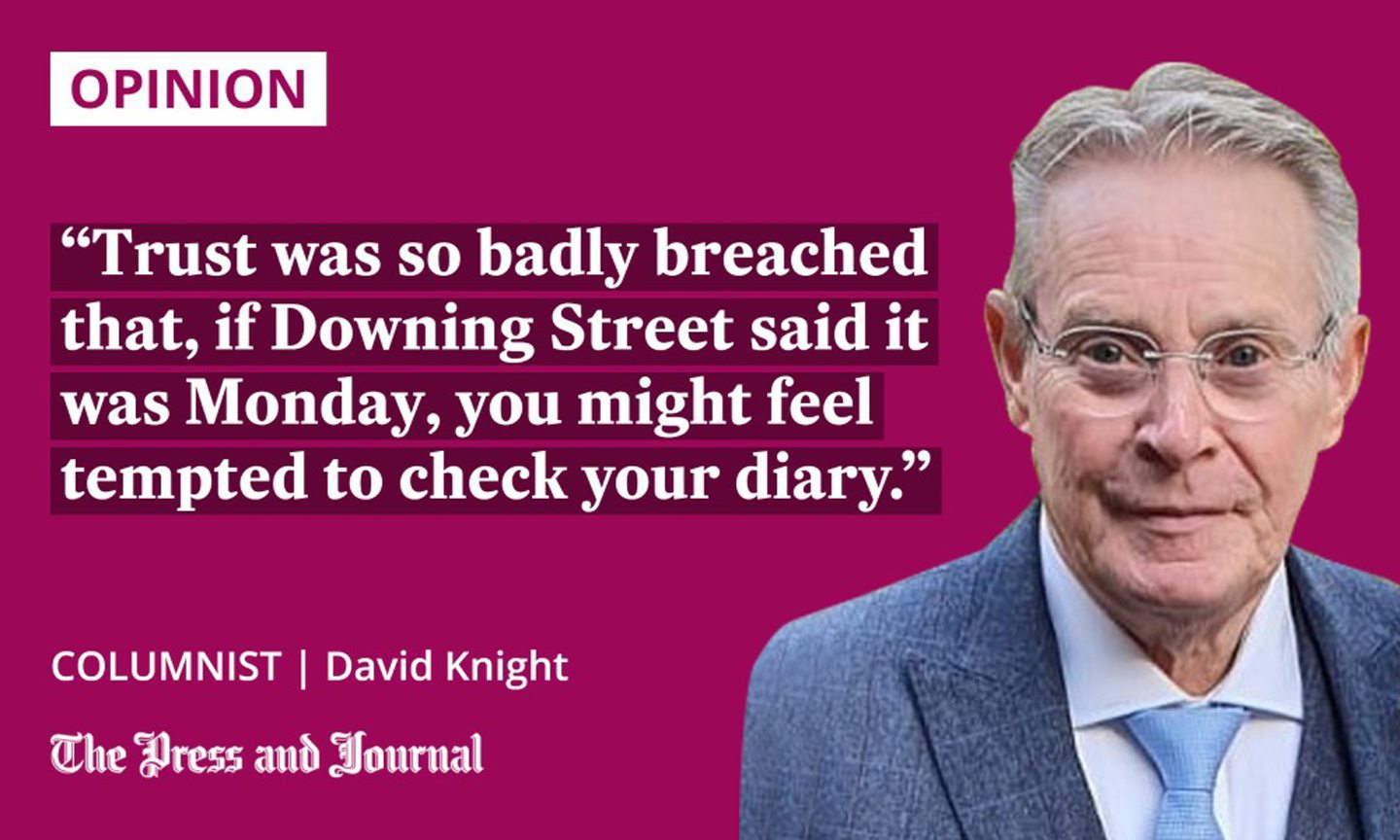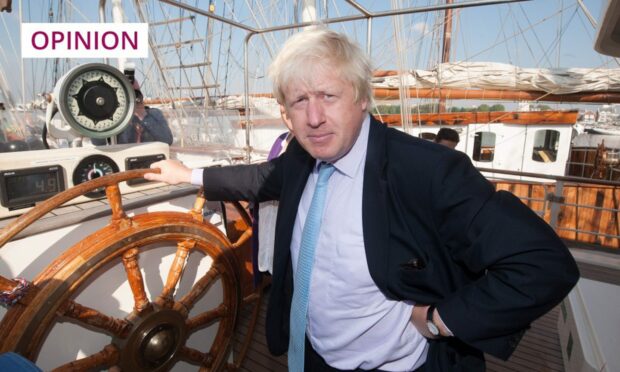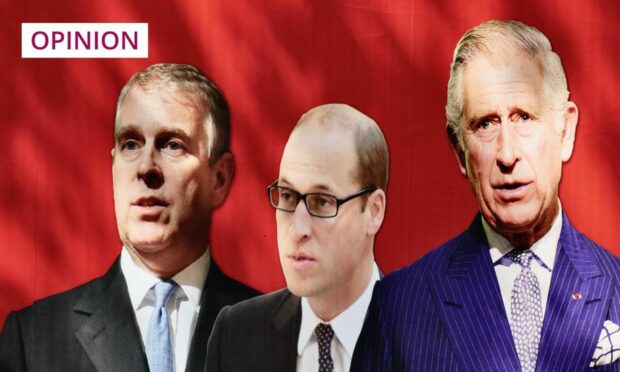The last time I saw Boris Johnson run out of his office in a cloud of dust, I was his boss – and he was searching for UFOs.
He didn’t find any.
You might say his struggle to control unidentified flying objects circling Downing Street is what did for his premiership years later. Waves of issues over judgement and integrity dropped out of the sky like bombs and sank him.
Failure to spot catastrophic banana skins in advance was a central theme, because it fed subsequent accusations of lying and cover-ups.

It was often said Boris was good at big brushstrokes, but poor at the detail. Watch MasterChef to see how often lack of attention to detail catches people out.
It finally convinced many that there was a permanent rift between him and the public over what being straight with people meant. The gap could never be bridged, because Mr Johnson and his Downing Street inner circle were wired to duck and dive.
Trust was so badly breached that, if Downing Street said it was Monday, you might feel tempted to check your diary.
Surely people are right when they say it’s unwise for him to stay on even temporarily until a new PM takes over.
A perception of clinging on in Number 10 illustrates another serious disconnection between those at the top of public office and the experiences of ordinary people in their own workplaces. It means the public could be forgiven for thinking normal HR practices don’t apply among the political elite.
‘Boris will be famous for something’
Boris and I crossed paths many moons ago, when he was dispatched from a famous London newspaper as a trainee journalist – a proper young toff, some might say – to be toughened up in a hard-bitten, provincial newsroom.
As chief reporter, I was to be his mentor and immediate boss for a month or so. He was Pike, I was Captain Mainwaring.
As he departed after his secondment, I observed: “Boris will be famous for something.” I didn’t know what.
He later said scenes of social deprivation in that town set him on a political career. (Don’t blame me, I never said anything.)
But, I discovered years later that my rudimentary mentoring skills had an impact on Boris – for better or worse.
Three decades on – after absolutely no intervening contact between us – he visited my old paper on the Brexit campaign trail. As he stepped into a media throng, one of the first things he said was: “Does anyone remember David Knight?” I saw it on Facebook.
We exchanged letters, and he added a warm handwritten note thanking me for my journalistic advice.
These thoughtful gestures stirred memories of him as a funny and charming, if slightly roguish, character
He also kindly sent me a video message a few years later – to mark my retirement from full-time journalism – in which he joked about being sent by me to check reports of UFOs all those years ago. Unfounded reports, as usual.
I told him we’d only publish a story about aliens if they knocked on our front door and introduced themselves.
These thoughtful gestures stirred memories of him as a funny and charming, if slightly roguish, character.
The newsroom at the time was a tight ship, where standards of professional conduct were high – and woe betide those who stepped out of line. This came from the top; the character and tone of an organisation is often set by the person in charge.
Johnson fell on his sword as his troops jumped off the wall
As Machiavelli wrote in The Prince, a leader who wants to be loved is not a good one: followers lose respect and take advantage. He said being feared and loathed was dangerous, too – as some Roman emperors found out.
Apparently, the best combination is to be feared and respected – so the troops are prepared to run through brick walls for their leader.
Boris fell on his sword as his troops jumped off the wall.
A fundamental breach of trust with the public is like a ship being holed beneath the waterline in a gale – whether there are any rats on board or not, to put a fresh twist on Sir Keir Starmer’s killer jibe. It’s broken and irreparable.
In the workplaces of ordinary people, a breach of trust is a serious matter. It qualifies in employment law as an act of gross misconduct. That in itself triggers instant dismissal and immediate departure.
Many ordinary people might be wondering why this has not happened in the prime minister’s case.
I respect his notable achievements during our biggest challenges since the Second World War. Who could have done better? Corbyn? Sturgeon? Don’t make me laugh.
But, apart from an obvious need for specific Ukraine continuity, sticking around for as long as three months is no good for Johnson, his colleagues or the country.
A cosy transition might be acceptable if he was retiring after an illustrious career with universal praise ringing in his ears, but he’s not.
David Knight is the long-serving former deputy editor of The Press and Journal









Conversation